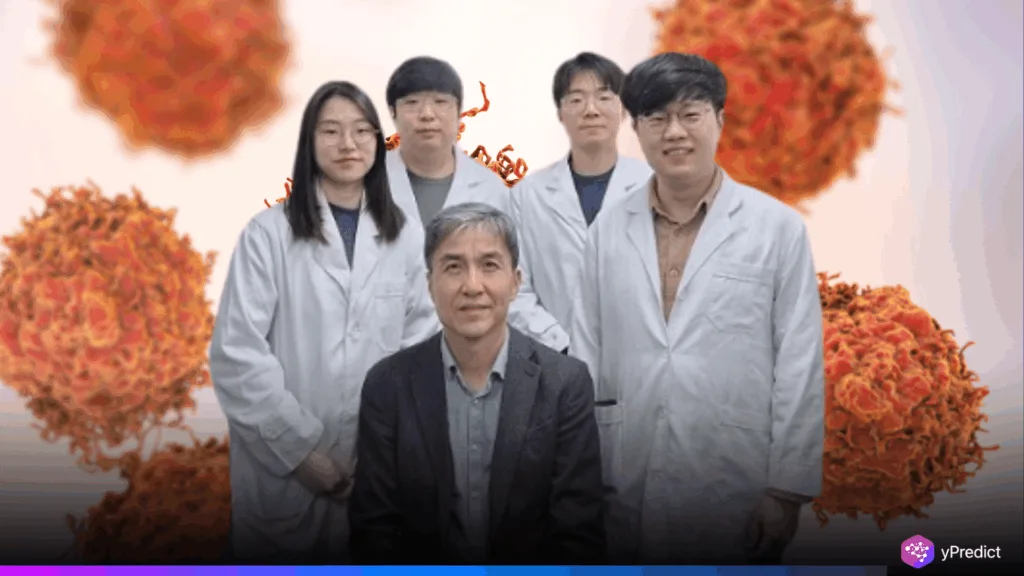
South Korean scientists have successfully reprogrammed colon cancer cells into healthy ones using AI cancer treatment. KAIST professor Kwang-Hyun Cho led this groundbreaking study. This study identified and altered important molecular switches using AI-powered digital twins, which are virtual representations of human gene behavior.
Furthermore, the method restores cancer cells to their normal state rather than eliminating them. This study has the potential to completely transform cancer treatment and has been confirmed in both lab and animal models. Additionally, although human trials are still being conducted, the results suggest that gene therapy may eventually take the place of chemotherapy.
Reprogramming Cancer Cells with Digital Precision
The KAIST team used AI-powered digital twin models constructed from more than 4,000 intestinal cells. This is to replicate the interactions between genes during the development of cancer. Their artificial intelligence (AI) system discovered three master control genes that influence tumor behavior: MYB, HDAC2, and FOXA2.
These genes were also silenced using gene therapy techniques like CRISPRi and siRNA. Consequently, colon cancer cells acted like normal intestinal cells in the laboratory. The growth of the cancerous cells slowed as they started to express two healthy markers, VDR and KRT20. Concurrently, MYC and WNT, two pathways linked to cancer, were inhibited.
Furthermore, these alterations were prevalent in the colon cancer cell lines HT-29 and HCT-116. As a result, the digital models correctly forecasted these results, proving that AI cancer treatment is effective.
Animal experiments also yielded favorable outcomes. In mice implanted with human colon cancer cells, the triple gene knockdown led to notably smaller tumors. The treatment consisted of targeted, reversible gene silencing without the use of chemicals or radiation. These results imply that the next wave of gene therapy may soon be defined by healing rather than killing.
Can AI Cancer Treatment Work in Humans?
The KAIST method is unique in that it designs and tests treatments using AI-powered digital twin systems before contacting actual tissue. This lowers risk and expedites discovery. Additionally, BioRevert Inc., a biotech startup dedicated to transforming this innovation into practical treatments, has been given the approach.
However, human clinical trials are still years away. Over time, scientists must make sure the reverted cells stay secure and stable. Ethics, regulation, and scalability remain problems. However, AI cancer treatment has the potential to transform how physicians treat more than just colon cancer if it is approved.
AI Cancer Treatment Begins a Healing-First Shift
This discovery represents a paradigm change from destruction to restoration. AI-powered digital twin modeling and targeted gene therapy could one day be used to heal rather than just destroy cancer cells. Additionally, the shift to AI-guided reversion raises the prospect of more intelligent and compassionate cancer treatment. The outcomes in mice and lab-grown cells are encouraging, but human testing is still a ways off. This could change the definition of AI cancer treatment for upcoming generations if it is shown to be safe.






